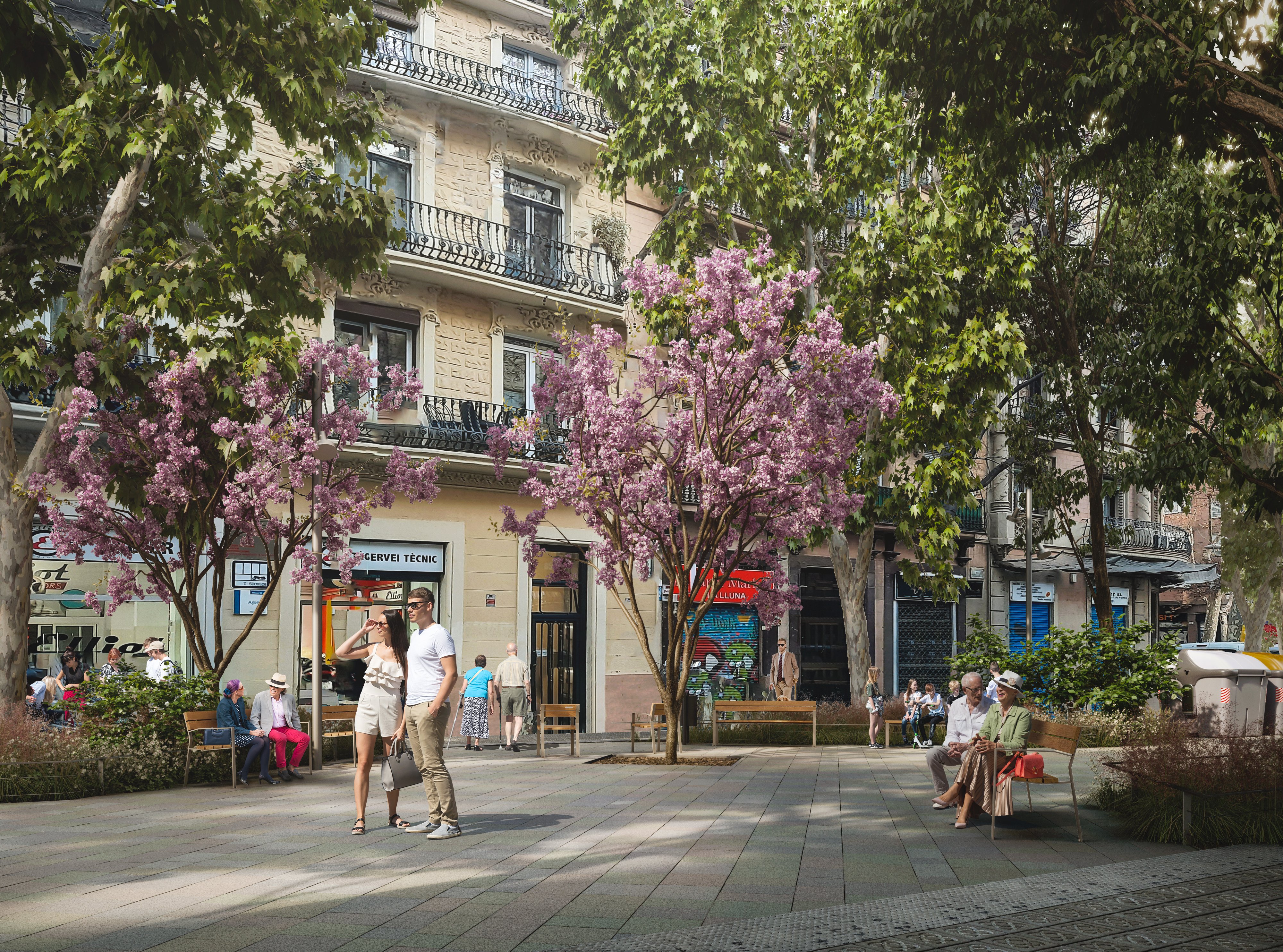"Revert the lack of dialogue and consensus" without necessarily reverting the urban reconstruction already carried out, that was the desire expressed this Friday morning by the president of the Union of Commercial Tourism Areas of Barcelona - Barcelona Oberta, Gabriel Jené, on behalf of the group that, together with employers' association Foment del Treball, presented the successful complaint that obliges Barcelona city council to dismantle the Green Axis conversion of the Eixample district street, Carrer Consell de Cent, as part of the city's Superblock pedestrianization plan. In fact, Barcelona Oberta has stepped back from the option of insisting on the execution of the ruling which calls for Consell de Cent to be returned to its original state - a busy traffic street - if instead there is a commitment by the current municipal government to open up a new policy of dialogue in which city planning changes are made through consensus, with the participation of the representatives of the city's shopping axes.
Jené himself was "surprised" by the severity of the court decision, which in any case, has a "harshness" which "creates a historical precedent in the democratic management of the city council", but he asserted that the problems caused by "ideological" transformations, "don't have to be solved by bricklayers". The president of Barcelona Oberta was harshly critical of the "sectarianism of Mrs Colau", giving the view that the urban changes promoted under council planning head and deputy mayor Janet Sanz responded to a desire to "muck around with the city centre", with situations such as "absurd lanes that only served to make it impossible for private vehicles to access the centre". That is why he demands that the new municipal government favour private vehicle access to the city centre.
In contrast, Jené showed himself very satisfied with the reaction of the current municipal government, which despite having announced the presentation of an appeal against the sentence, has already shown signs of a new approach, both on Thursday afternoon, when the first deputy mayor, Laia Bonet, announced a new era of "dialogue and consensus" in the decisions on urban transformations, and this Friday morning, when the mayor of Barcelona, Jaume Collboni, spoke to the complainants by phone, in a conversation that showed his openness to a new approach. "We appreciate the words of Bonet, who said that she wanted transformative urban planning based on dialogue and consensus", Jené noted, adding that the group has noted "this same philosophy from Jaume Collboni, showing willingness to reach out and start a process of dialogue so as not to have to ask for execution [of the sentence] and begin the dismantling process, which was a surprise to us, in that the judge asked for it so forcefully", affirmed the president of Barcelona Oberta.
Heaven and hell, two streets apart
Jené, who appeared accompanied by the general secretary of the Forment del Treball employers group, David Tormos, and lawyer José Soria, who conducted the case, argued that the retail areas also want "a greener and friendlier city" but always from a starting point of "socio-economic, environmental and impact reports". He affirmed that the transformation of Carrer Consell de Cent into a green axis has created 'a paradise but also an inferno', alluding to the traffic problems generated on Carrer València, which takes much of the traffic that can no longer pass through Consell de Cent, and for this reason he demanded that, beyond the specific situation in this street, the participation of the commercial sector in new transformative processes be guaranteed: "Retail will have to have a role and be just another actor among the citizens". Nevertheless, Barcelona Oberta did not wish to specify solutions for the current problems generated in the streets of Consell de Cent or Valencia, leaving those in the hands of the technicians and the council - but always involving dialogue.

